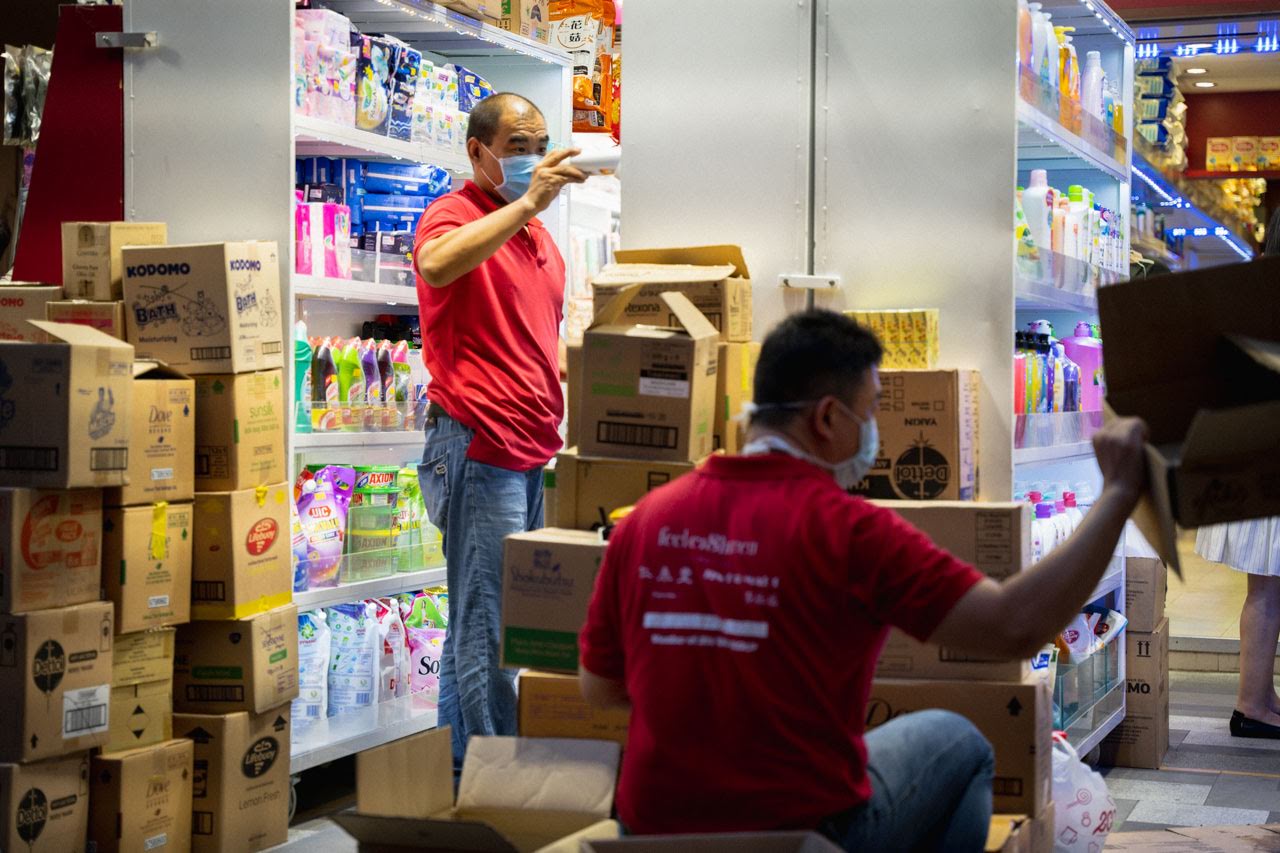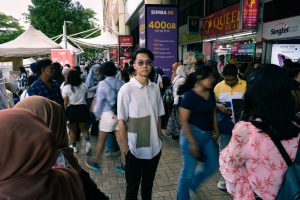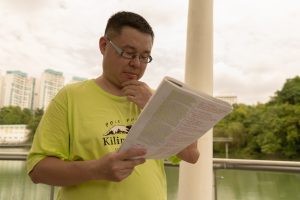Most Singaporeans hardly think about our waste after disposing of it at public litter bins or down the HDB rubbish chute. Yet even during the current pandemic, waste management services have miraculously continued to function. Real people continue to collect our waste, sanitise our lifts, and maintain our public toilets.
Likewise, when buying groceries, we might overlook what’s actually needed to secure our food sources. Our food supplies continue to be available due to the combined efforts of many workers: farm, fishery, and abattoir workers; packers, delivery workers, and supermarket shelf stackers. In a time where conversations about work revolve around the changing nature of the office in a ‘new normal’, it’s easy to overlook those who don’t have the option of working from home.
As more people return to work under the “Safe Re-opening” phase, we might forget that some workplaces never “closed”. These include jobs we considered ‘essential’. Public-facing workers, including cashiers, wet market, and coffeeshop stallholders make difficult decisions each working minute. In some way, our essential workers choose between protecting their lives and their livelihoods.
Personally, reality only really struck when I saw my neighbourhood fishball noodles aunty wearing a mask while cooking.
Although CB measures are being gradually relaxed, I recall the very real risks that essential workers have faced since this crisis began. McDonald’s halted operations after seven of its employees tested positive in a week. 180 000 migrant workers and dependants received stay-home notices. As food delivery became one way to minimise social contact, harsher penalties were introduced for riders who breached safe distancing regulations.
This pandemic has shown us what’s really crucial in everyday life. Globally, Covid-19 has raised public awareness that certain essential jobs form the invisible foundations of our sparkling cities. In Singapore, we have a clearly defined list of ‘essential services’. It is also a list that raises the pressing question: why are some of the workers who do “essential” work also the workers who are paid the least?
It is often said, “the greater the risk, the greater the reward”. Yet, the invisible services that are essential to everyday living have consistently been poorly compensated when compared to the jobs we do while “staying at home”.
As Member of Parliament Zainal Sapari noted recently: “Unfortunately, in many societies, the more useful the work is, the less they pay you”.
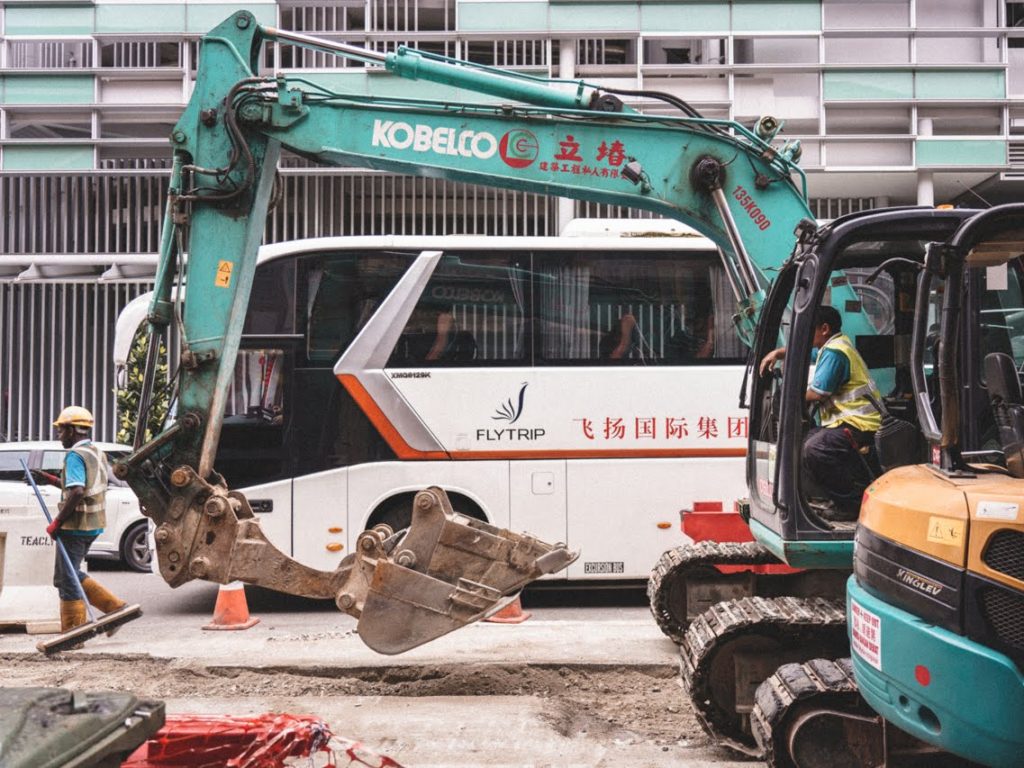
On the other hand, we seem to be good at pricing other specific costs. Workers are often rewarded with higher pay for taking on greater responsibilities. For example, supervisory and managerial roles are rewarded because more difficult and consequential decisions are made.
Since we can account for those costs, why can’t we better reward the different and often unseen stresses upon the body? For a worker in this pandemic, weighing the abstract risk of health and safety against the immediate benefit of wages seems like a non-decision. It doesn’t help that such abstract risks are often difficult to measure, especially when it comes to, say, the less-understood risks of transmission of Covid-19. We sometimes refer to “pay” as “compensation”. How can we then better reimburse workers for taking on the physical and social costs of work—especially work that we take for granted?
One obstacle is that we attach little value to these essential jobs in terms of salary and prestige because they require lower skill or education levels. Of course, Singapore didn’t invent the distinction between blue- and white-collar work. Yet, it is more sharply felt here because of our internalised cultural beliefs about self-worth.
We tell ourselves that those who have not ‘made it’ are less deserving. They make poor life choices, or simply have intrinsically less value than others. As a result, we have a clear hierarchy of jobs and occupations, where physically intensive labour often occupies the bottom rungs.
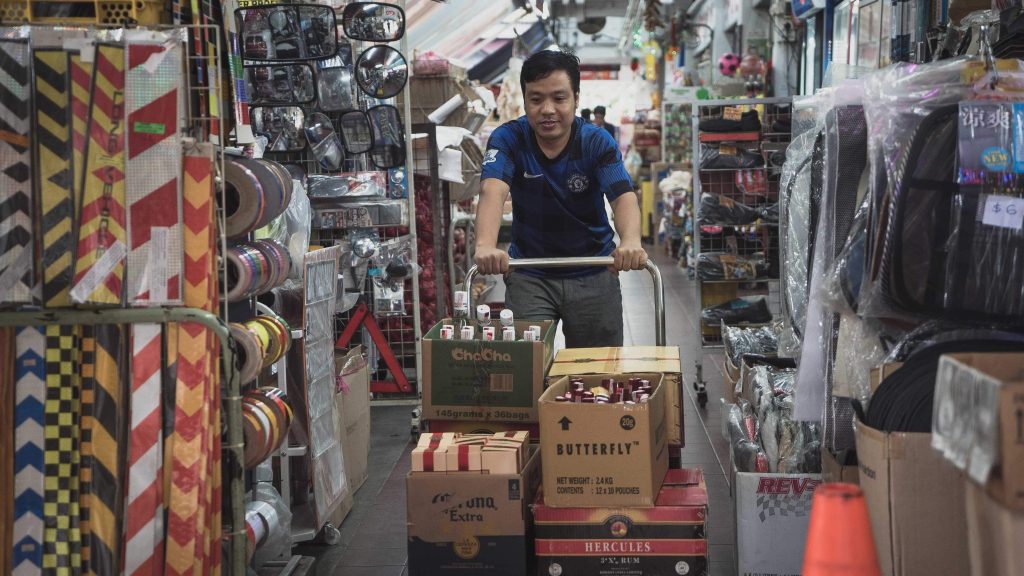
We conclude that certain jobs are ‘not for us’, and that they are done by a group of people ‘less than us’. It might not be such a stretch to say that Singaporeans have left the literal work of nation-building to migrant workers.
Recent popular social science literature debunks this myth that low income is exclusively the result of poor personal choices or low intrinsic value. Yet when people with low income or education levels take on such jobs during public health crises, these already disadvantaged groups of people are only exposed to greater harm.
Unpopular as this may be, it needs to be recognised that too little is being paid for our essential services. Rather than squeeze every ounce of value we can from workers, we must pay them more. Not everyone can directly influence wages, however, since there are often many steps in the production process that separate consumer and producer. So perhaps if you are a business owner, or employ a domestic helper, consider how you can pay them more fairly. If you order food from a delivery platform, tipping your rider is easy enough to do through the app.
This isn’t an easy sell, because Singapore thrives on a model where the winner—the most efficient, smartest, hardest, fastest worker—takes not-all-but-a-significant-chunk. As Nominated Member of Parliament Walter Theseira has observed, there is a gap between “market prices” and “social value”. This gap includes the loss of workers’ welfare that Mr Zainal observes. His wide-ranging proposals include calling upon “socially responsible” buyers to reject service providers that provide services at low cost, but at the expense of essential service workers’ welfare.
Bridging this gap may be what we need for a happier, more dignified society. Increased wages might lead to higher costs of living, but they will be a fairer reflection of the true costs of our standards of living.
We shouldn’t seek to return to “normal” post Covid-19. Instead, we should take this much-needed opportunity to change the way we value and reward workers.
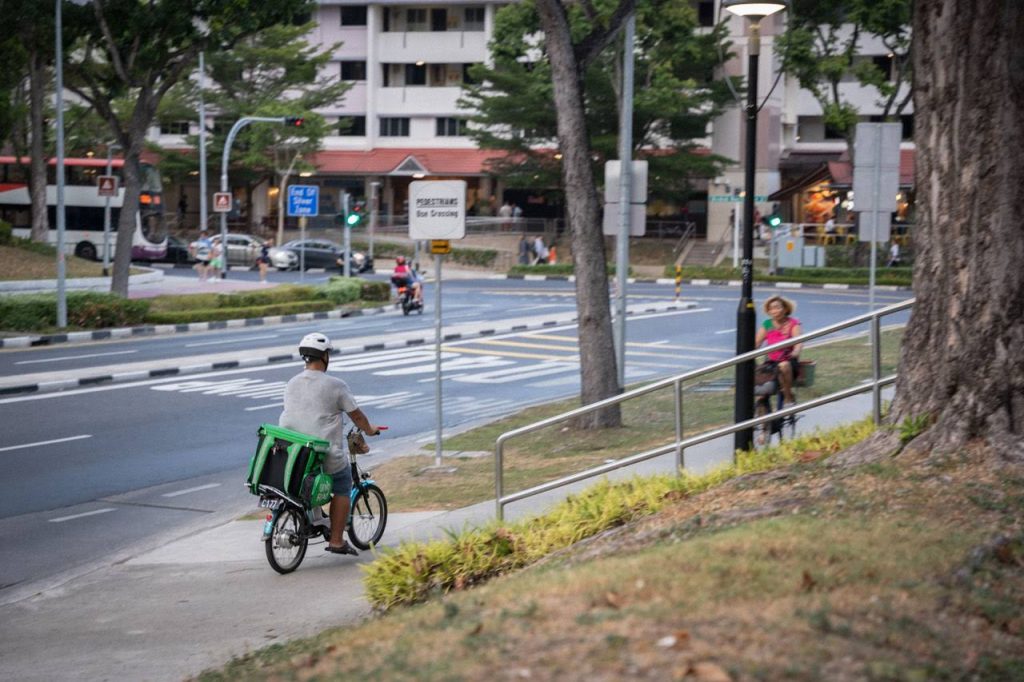
Part of me is optimistic that this would change how we think about the value of construction workers. Yet, the way we already treat other essential workers tells me that very little might change.
While in the UK, I had the chance to experience the inconvenience created by labour movements. Various strikes disrupted my plans more than once, including train travel and (slightly more importantly) my classes. Yet these incidents helped me understand that real people, who do the work that I took for granted, had a say in their wages. Perhaps the state can step in to explore other means of hardwiring the capacity for greater listening and self-representation within Singapore’s labour market.
As individuals, we can start by supporting the various ground up redistributive efforts. Actively search out ways to recognise value. If cooking at home has been tiring, perhaps you might now be open to paying more for hawker food. Buying from local businesses might sometimes be more expensive, yet doing so enables us to better account for the actual costs of manpower and materials, rather than contribute to pushing down wages elsewhere in the world. Research concepts like ethical fashion and fair trade. Ultimately, buying from the source commits us to valuing the person behind the products and services we otherwise indifferently consume.
Together, we need to find ways to recognise and relate to the people who do the work we’d rather not do ourselves. Can we honour the present sacrifices of essential and frontline workers by finding better ways of distributing risks and rewards throughout society for the future?

